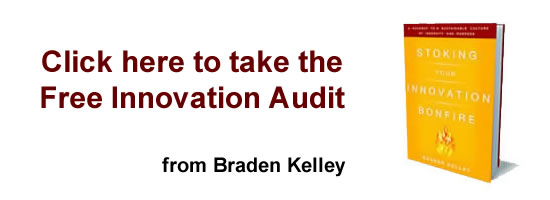Real Magic: The Power of Words
 Part one of two
Part one of two
The life of an organization is defined and redefined by the language it chooses to use. More than any other factor, compliance around words conveys the values of a place where people work. Indeed, words are magic, carrying so much weight that they demand careful, conscious attention.
You know the power of language. Scholars have been following the dynamic field since humans first uttered syllables, painted symbols on cave walls, and wrote words on papyrus. There are many classes in workplace linguistics, too.
Words convey our worldviews, prejudices, pre-set notions, and the shared mores of a culture. Nothing will have an HR department crack down on a person as fast as an inappropriate written or verbal expression.
Without realizing it, we inherent so much language from the field of management science. Words and phrases such as scope, timesheet, clock in and clock out, report, rank, and review—as well as acronyms that only mean something inside of one culture—come from this world.
Such words, as they fuse together to form a system of shared meaning, the work world becomes a mechanistic reality. Here, in this world, crafted with the careful language of metrics and planning, most connotations infer binary sets of meaning: loss or gain; hired or fired, promoted or demoted, safe or endangered.
With such either/or choices artificially constructed by the language we inherit, fear creeps in, as in “we are either growing or dying.†Given these constraints, these shackles of perception forged with words, it is little wonder that creativity and strategy are more often than not outsourced. You see, given the time-obsessed, right or wrong paradigm, we have edited the better parts of our humanity out of the workplace.
What gets lost? Time for critical and nuanced thinking not immediately goal focused get shoved aside, even if it would be more valuable to the organization once uncovered. Creative explorations are traded in for the false and illusory security of a plan. In these cultures, different ways of hearing the world are suspect, including hearing through the ears of customers or consumers; language is different, often too idiomatic for analytical understanding—and this world is biased toward the “rational and analytical.â€
Worst of all in this era of efficiency, the inspirational language of vision gets lost. At one level, it gets abused as hypocritical lip service by middle management and then lampooned as in the series of satirical motivational posters that professional people love. Hey, they can empathize, as it is built into their world by the words that create their version of reality.
At a deeper level, vision is created when new ideas get expressed in new ways. If your organization has a stranglehold on new language — or is in love with its historic vernacular — you lose the potential of real vision existing in your culture.
Look for Part Two next week.
Image credit: pinterest
Wait! Before you go…
Choose how you want the latest innovation content delivered to you:
- Daily — RSS Feed — Email — Twitter — Facebook — Linkedin Today
- Weekly — Email Newsletter — Free Magazine — Linkedin Group
 Michael Graber is the managing partner of the Southern Growth Studio, an innovation and strategic growth firm based in Memphis, TN and the author of Going Electric. Visit www.southerngrowthstudio.com to learn more.
Michael Graber is the managing partner of the Southern Growth Studio, an innovation and strategic growth firm based in Memphis, TN and the author of Going Electric. Visit www.southerngrowthstudio.com to learn more.
NEVER MISS ANOTHER NEWSLETTER!
LATEST BLOGS
How Brexit Has Affected UK E-commerce Businesses
Photo by Zyro on Unsplash The popularity of online shopping was already growing at an impressive rate – and…
Read MoreOvercoming range anxiety: three tips for EV owners
Photo by Jenny Ueberberg on Unsplash In the last few years, electric vehicles (EVs) have become more and more…
Read More


